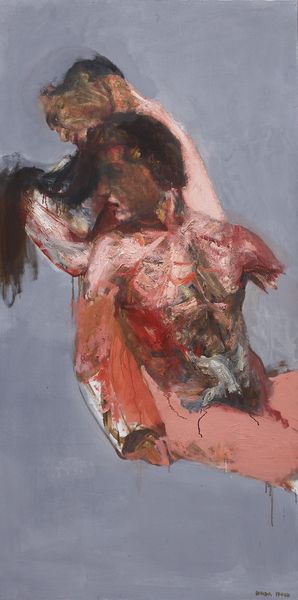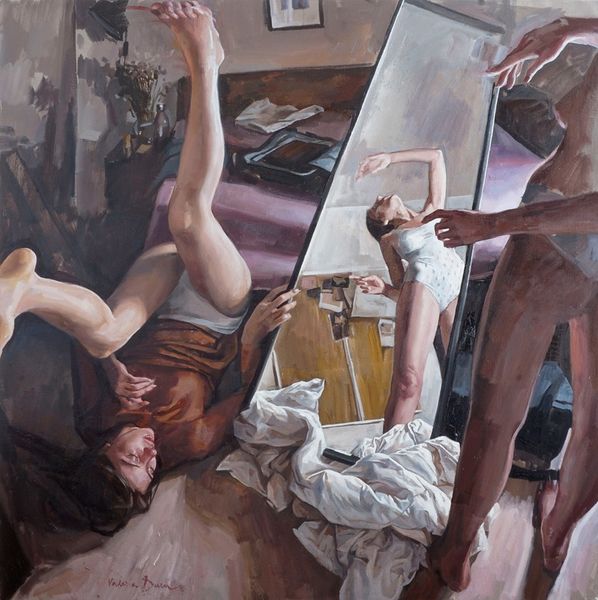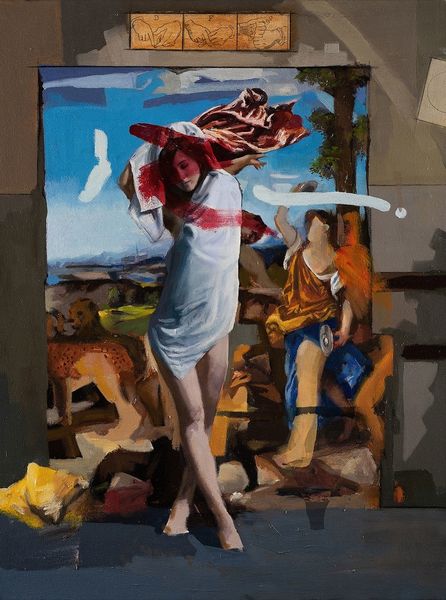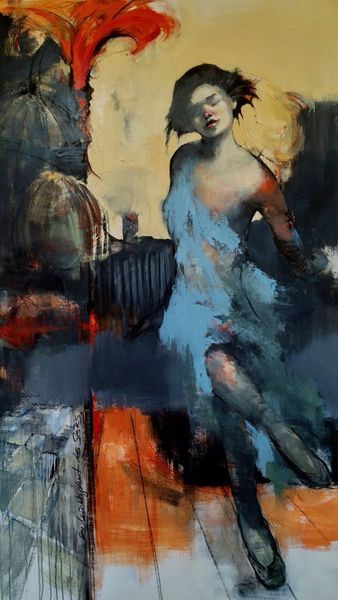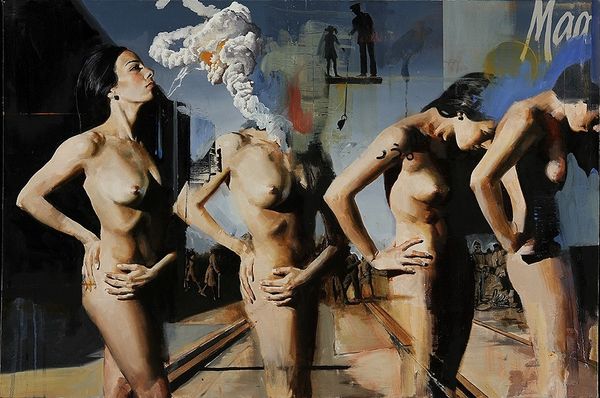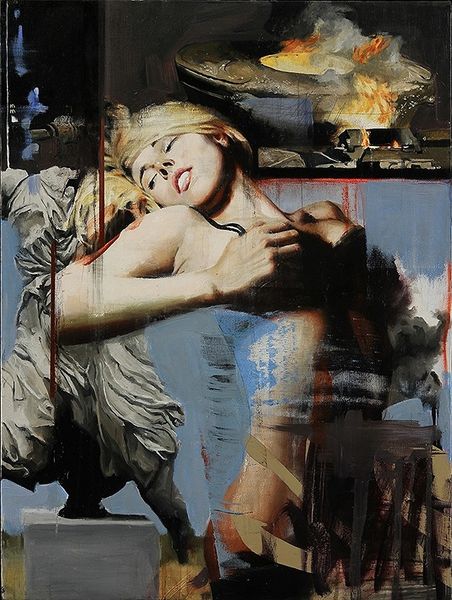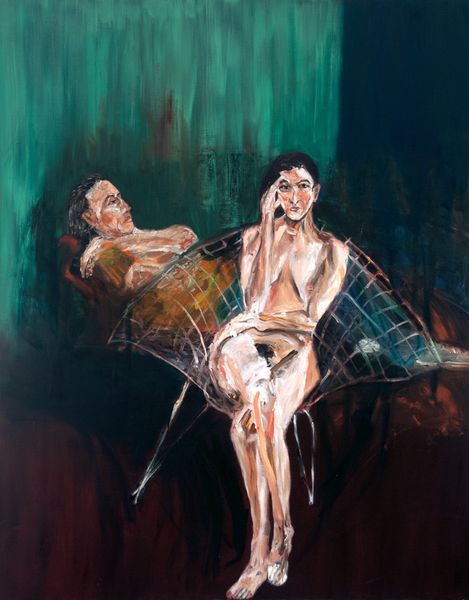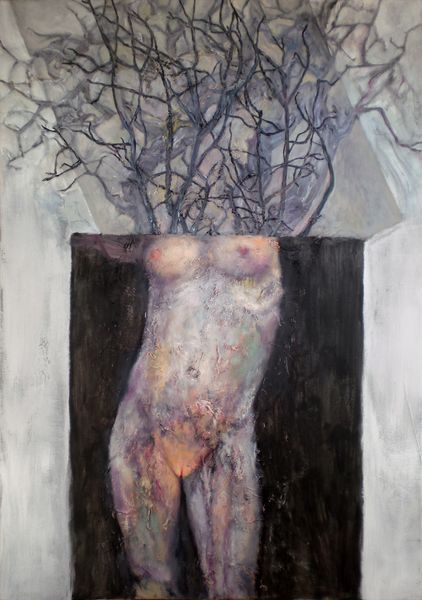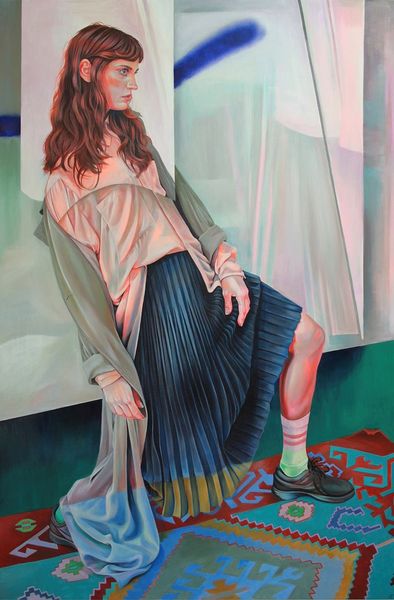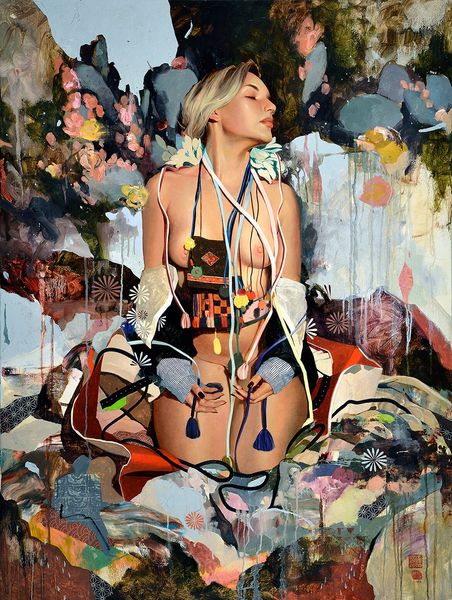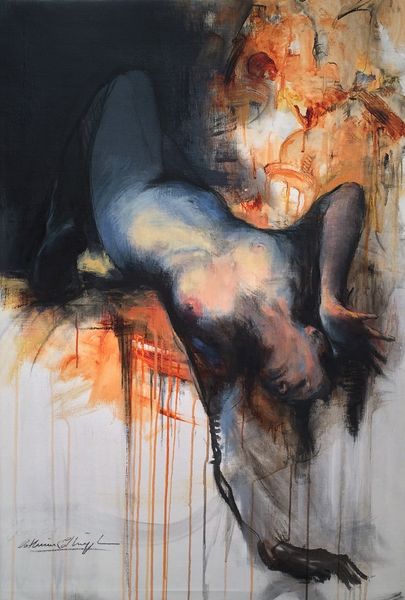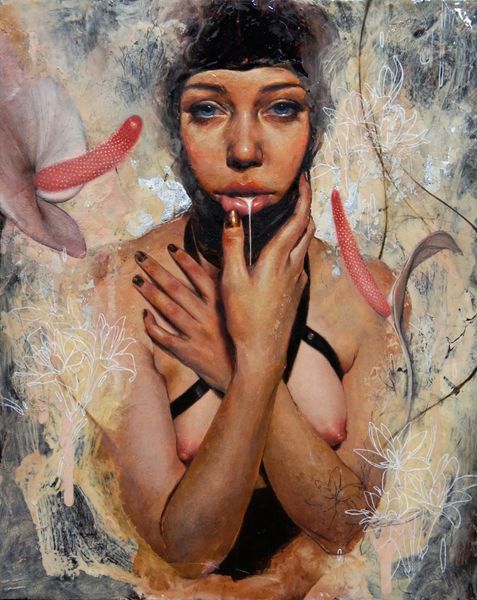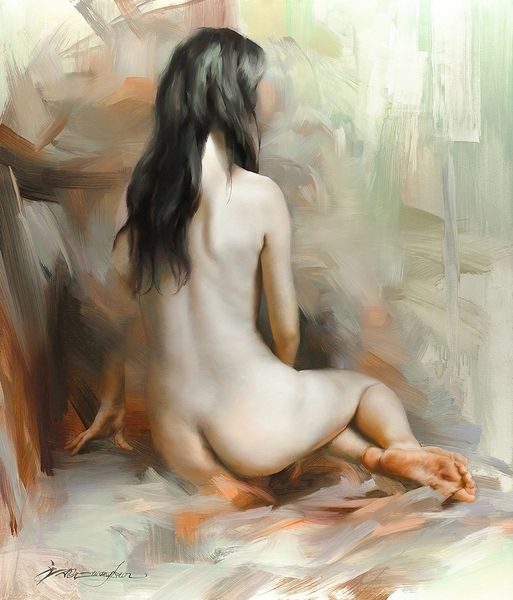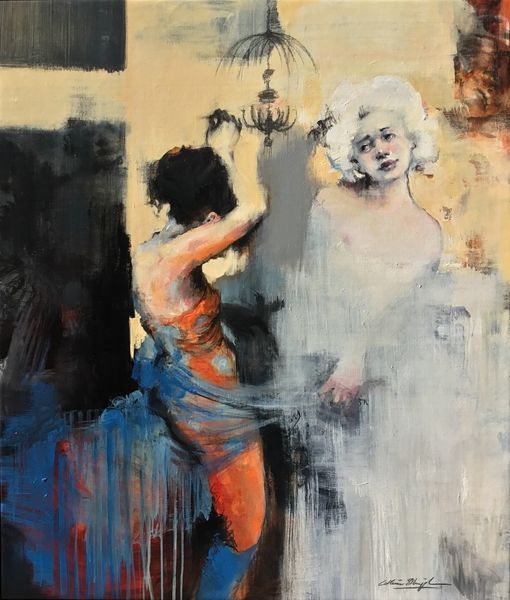
oil-paint, acrylic-paint
#
portrait
#
figurative
#
contemporary
#
oil-paint
#
acrylic-paint
#
figuration
#
oil painting
#
neo expressionist
#
acrylic on canvas
#
neo-expressionism
#
underpainting
#
nude
Copyright: Modern Artists: Artvee
Curator: Oh, wow. There’s so much raw emotion hitting me right now – almost overwhelming. I feel a strange mix of vulnerability and confrontation. It’s deeply unsettling, actually. Editor: And yet strangely compelling. This is Adam Caldwell’s “Principles of Human Knowledge”, from 2018. It's an oil and acrylic painting exploring figurative and portrait themes through a contemporary and neo-expressionist style. Curator: Neo-expressionist, that's interesting. It definitely carries that raw, unfiltered energy. I can’t shake the feeling that the plastic over the figure represents something suffocating, maybe societal pressures or internal conflict, even our desire for transparency of privacy. I see both exposed, it’s unsettling and it’s clever to render this with a see-through object. Editor: Precisely, Adam Caldwell often engages with societal norms and anxieties within the language of portraiture. Consider the "Principles of Human Knowledge" title paired with a nude figure obscured by plastic wrap. This act presents the figure as a modern-day subject of study – a site for investigating knowledge and experience, where historical narratives can be rewritten and retold through art history. Curator: Rewriting narratives – I love that! And the orange underpainting... the intense, visceral feel. There’s a fire-like quality about the subject but you’re right in making the observation with his art historical play of imagery. Editor: Caldwell is exceptionally deliberate, in his compositional and artistic construction. He seems keenly aware of the history and power of images and the way knowledge, as we understand, has evolved through the socio-political discourse within art practices. The draped plastic can be interpreted both literally and symbolically: perhaps reflecting a self-conscious gaze, the anxieties surrounding physical presentation, and or critique towards commodification or artificiality. Curator: So true. You know, standing here, I almost feel like I’m intruding on something deeply personal. Editor: Art's power lies in making that intimacy so universally accessible for dialogue, pushing us beyond comfortable interpretations, wouldn’t you agree? Curator: Absolutely, giving pause, even a sense of unease like I feel looking at “Principles of Human Knowledge.” It sticks with you, like a philosophical puzzle.
Comments
No comments
Be the first to comment and join the conversation on the ultimate creative platform.
